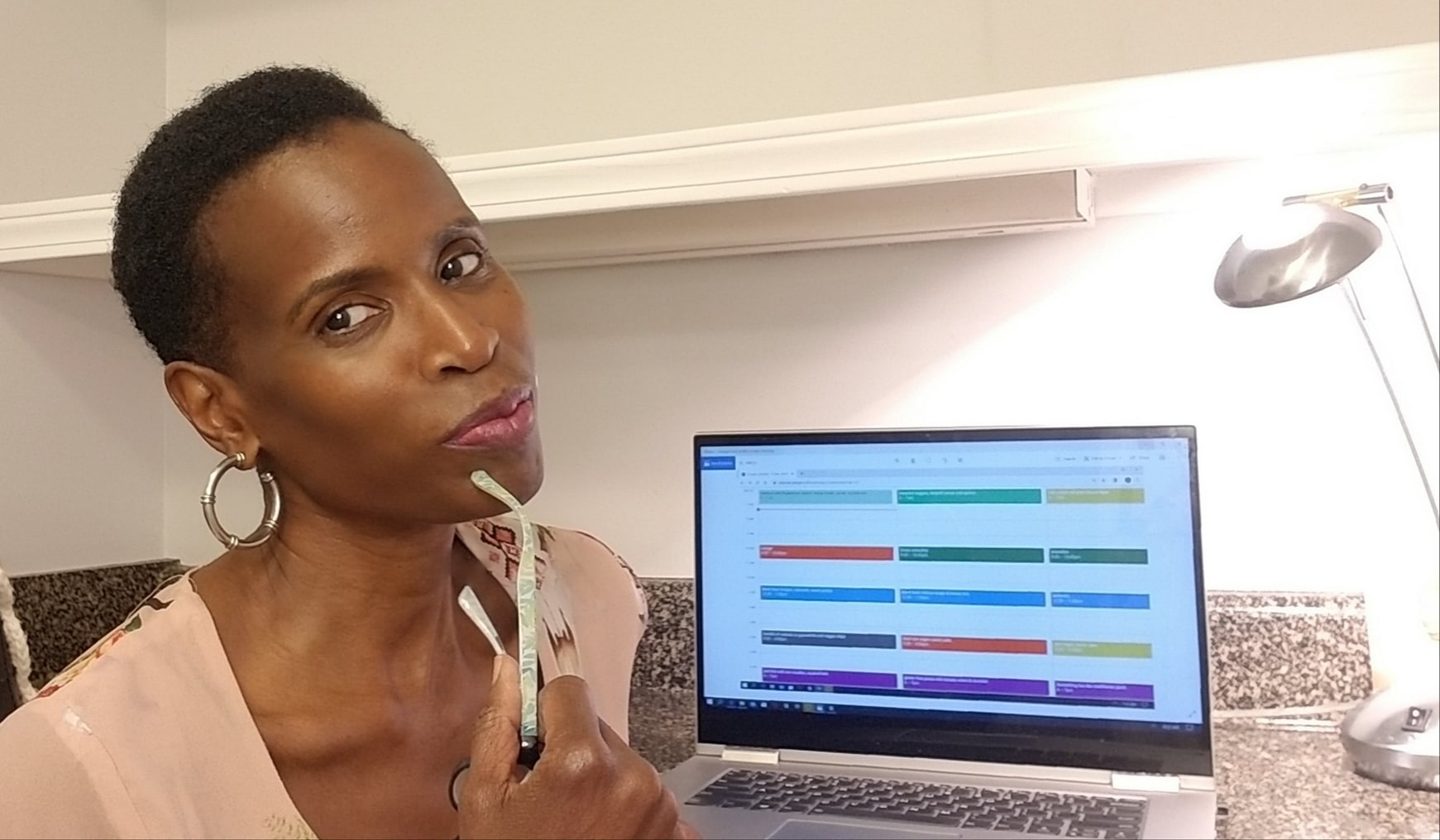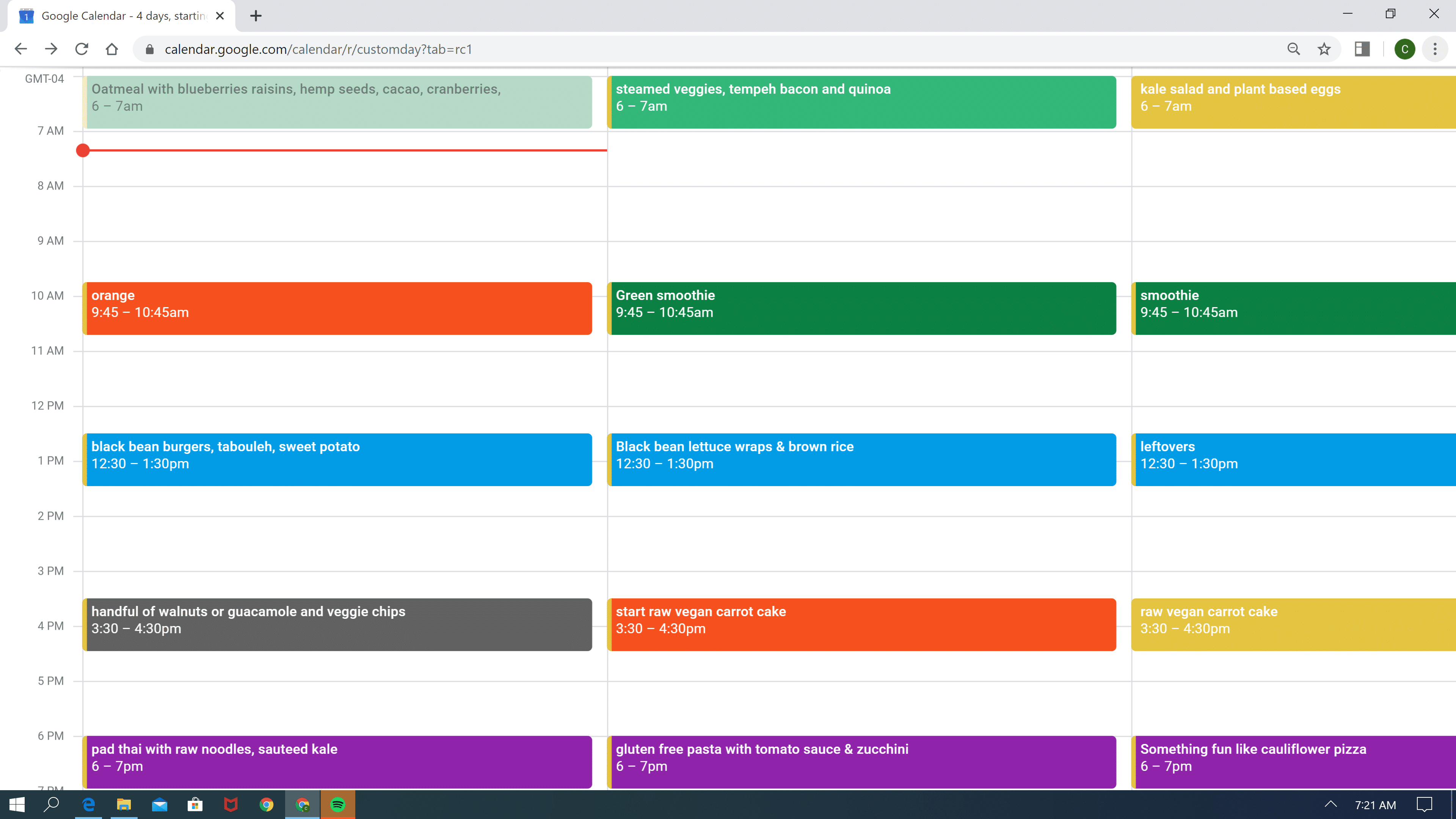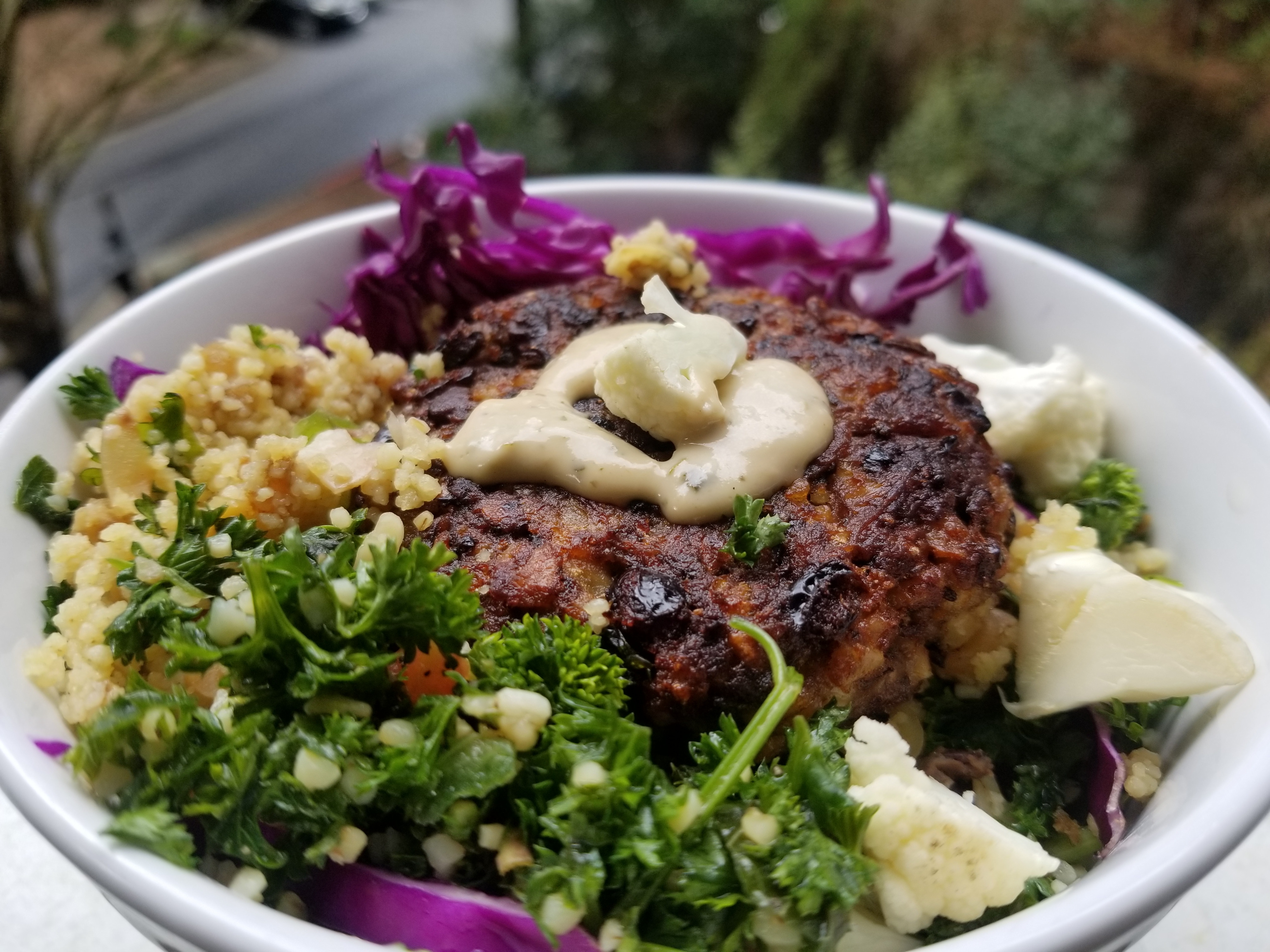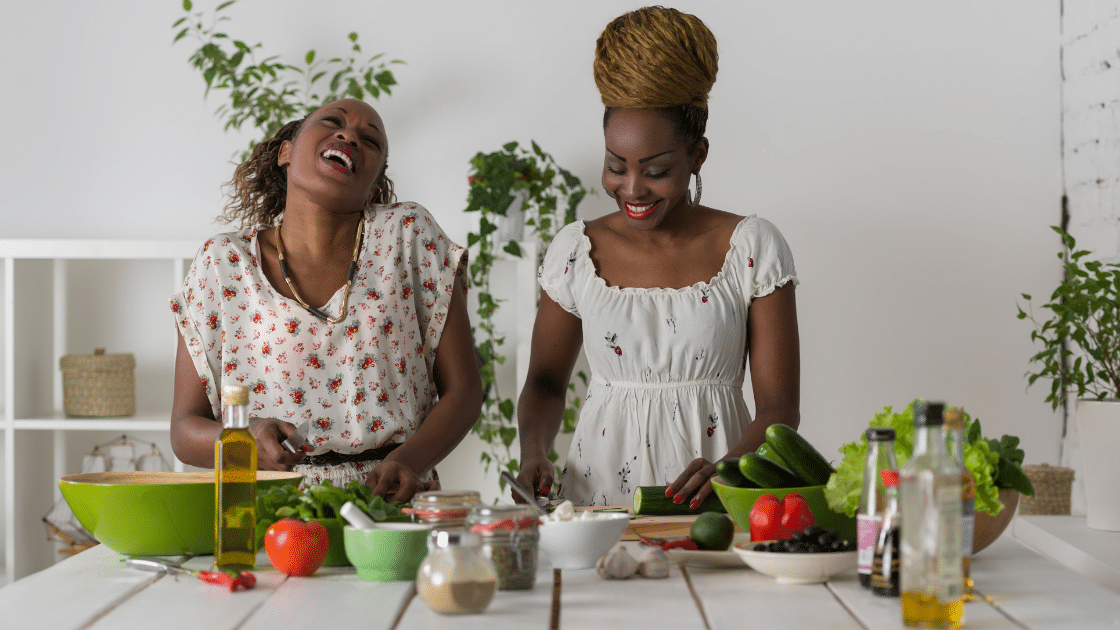Meal prep even when you’re stuck inside.
I see you with those yoga pants, t-shirt, and bushy eyebrows.
Yes, if you’re like me, all this self-isolation from COVID-19 has taken a toll on your appearance. I too have settled into a rhythm of what I call nouveau leisure.
That’s a fancy way of saying I sometimes have a snag or two in my pants and my faded t-shirts have moved to the front of my closet.
I know firsthand once a routine sets in, it can quickly become a habit.
If you’re looking to avoid the pitfalls of mindless eating that may come from what seems like an endless eternity of staying at home, read on my friend.
1. Begin your week, planning your meals
Even if you’re not going anywhere that’s exactly why you should plan ahead.
We’ve heard time and time again that eating primarily whole, plant-based foods can help you strengthen your immune system. But it won’t work if you don’t do it.
First, think about what’s in your fridge now and what you need to buy for the upcoming week. Write it down on paper or put the list in your notes app on your smartphone.
You’ll find that one of the best benefits of creating a meal schedule is that you’ll cut down on waste and save money. Who doesn’t like that?
2. Start a meal calendar
A meal calendar is like having your own private secretary. It lets you know ahead of time when to begin preparing your meals.
I like using Google calendar, but if putting down ideas for upcoming meals in a journal or a paper calendar floats your boat, then do it. I use whatever inspires me. Color, special fonts, and pictures are great tools to keep you motivated.
Next, while you’re putting your calendar together, write in the plant-based foods that you would like to eat for breakfast, lunch, and dinner.
Make sure you don’t forget your snacks.
Setting a time to eat healthy foods like an orange, an apple, or making a green smoothie can help you avoid scarfing down foods that may be higher in fat, sodium, and calories like a bag of potato chips.
Even if you’re not 100% plant-based, setting daily goals can lead to small gains.
Since I’m not vegan, my calendar sometimes includes a couple of animal products, like eggs and fish, but I keep the number low, below 10%.
If you can fill out your calendar for the whole week, that’s great. If a seven-day head start is too overwhelming, then fill it out every couple of days. Don’t make it complicated.
But what if you don’t like to write? There are other tools you can use, like using your phone’s voice recorder. It’s the perfect solution, especially if you normally talk faster than you write.
3. Look for inspiration
Sometimes it’s hard to find the motivation to cook. I get it.
Now’s the time to dig out some of your cookbooks. Just looking at the pictures can inspire you to head to the stove or create a big ole salad.
You can also start a Pinterest board, or cut out pictures from food magazines to help you visualize the perfect meal schedule for you.
4. Chop, slice and dice ahead of time
As soon as you come home from the store, cut up plenty of cruciferous vegetables like broccoli, cauliflower, cabbage. I find they’re the easiest to organize.
Next, I like to slice other vegetables, like carrots, squash, and zucchini.
Veggies like these are easy to place on my calendar, and I can always switch them out.
Also, my family has found that we cook less because we have more bright, abundant vegetables already prepped to throw in a salad or veggie bowl.
If you don’t like to pre-prep vegetables, your local grocery store has plenty of chopped vegetables that you can pick up. Buying frozen vegetables can also help you get meals onto the table faster.
5. Review your calendar the day before and day of your meals
If you’re going to make your calendar work for you, check it throughout the day, at least a couple of hours before each meal, so you know what to eat next.
A food calendar is like a road map that can help you see where you’re going. It helps you avoid getting off the wrong exit and landing somewhere that’s filled with sugar, processed food, and binge eating.
6. Go easy on yourself
Even if you don’t make everything on your calendar, just enjoy the fact that you attempted to create something on your list.
And don’t forget your leftovers. A lot of times, I have leftovers from meals that I made on the first couple of days on my calendar, which ends up pushing my other meal ideas to the following week.
Finally, seeing your meals in print can also reinforce your commitment to staying on track.
Even though the rest of the world may hold a lot of uncertainty at this time, you can help your body feel calmer and secure, starting with your plate.
Getting a jump start on your weekly meals may be just what you need to magnify your well-being. Something we could all use right about now.
So what are you doing during this time to eat healthier, high-vibrational foods? I want to hear all about it. Let me know in the comments below.
Additional Blog Posts
How to support your friends on their veggie journey
There’s nothing like hanging out with your bestie—especially when you’re sharing a meal. But what if she’s made a commitment to eating more vegetables and you’re, well, more excited about going to that new seafood restaurant you just discovered on Yelp. Here’s how...





